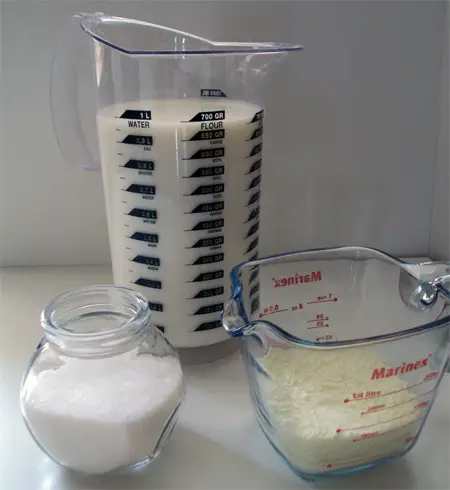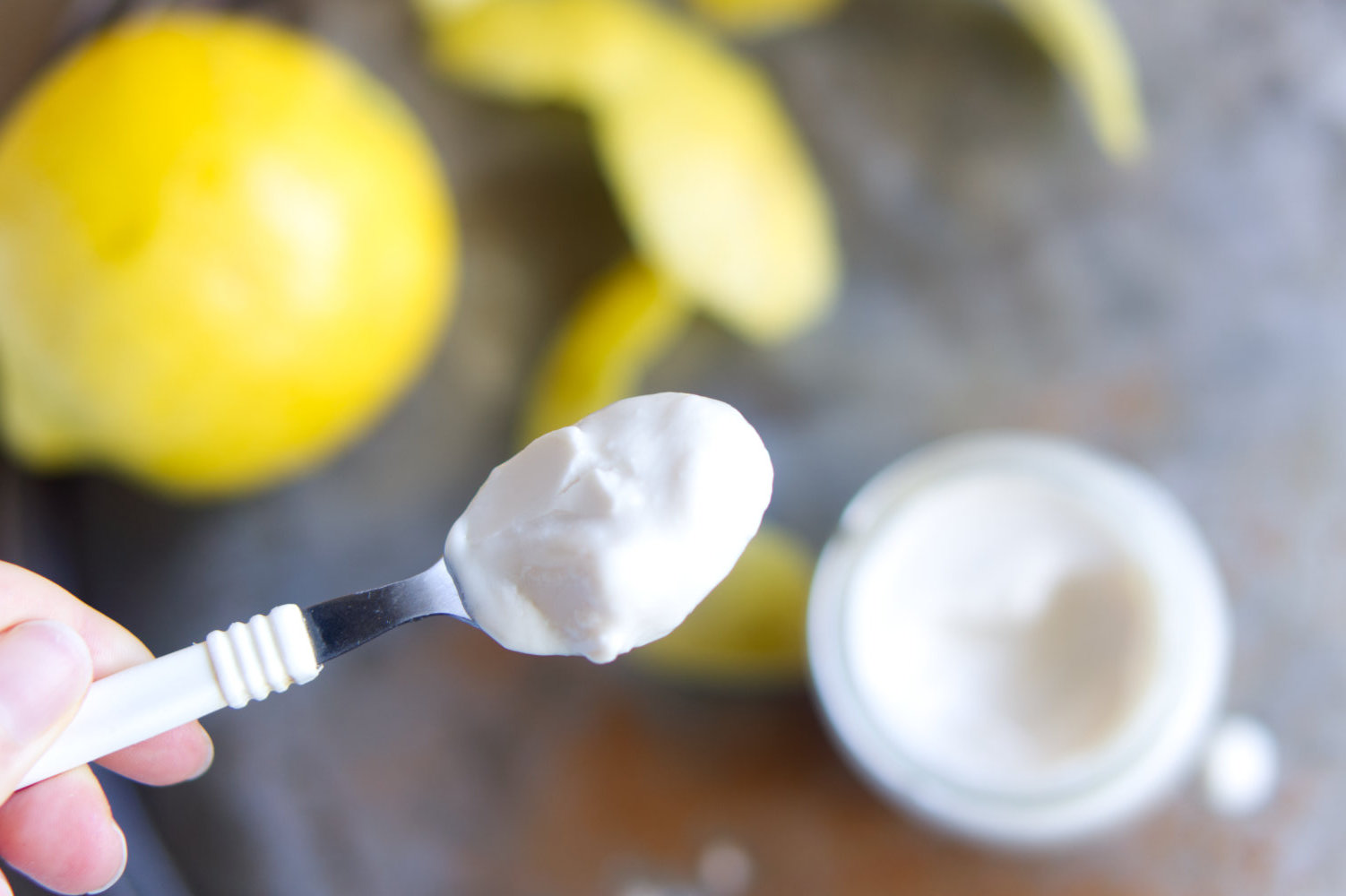I have been making yogurt for 15+ years and I can tell you right now and homemade yogurt doesn’t usually go bad. So I wouldn’t worry about it on a regular basis.
Of course, this yogurt doesn’t last forever either, as with everything, there’s a limit on how much time homemade yogurt will last in your fridge and if you do something wrong when following a homemade yogurt recipe, it might go bad because of it.
Can homemade yogurt make you sick?
Overall, homemade yogurt is pretty much the same as regular yogurt, the one that you buy at the supermarket. If you do everything properly, there’s no reason for you to believe that homemade yogurt can make you sick. Be sure to use fresh ingredients, clean the utensils that you use when making your homemade yogurt.
And of course don’t eat anything that has a weird smell, taste, or color – for example, if your yogurt is black definitely something bad happened.
In terms of storage, my general rule for you is to avoid doing things much differently than you would with regular yogurt.
This brings me to my first point.
Homemade Yogurt and Fridge Temperature

I have seen people talk online about being scared of taking their yogurt to consume and storing it back in their fridge multiple times.
I have taken out my yogurt multiple times from the fridge and that has never been an issue. My homemade yogurt has never gone bad because of it.
Here’s what I usually do: take the container from the fridge, scoop a few tablespoons to a different container, and store it again. As simple as that.
I store my yogurt on the higher shelf in my fridge – that’s where it’s the coldest in every fridge and it’s usually recommended to keep yogurts there.
I did this with commercial yogurt and do the same for my homemade yogurt.
Since I have a smaller fridge and my larger container (the one from my Easiyo) doesn’t fit in there, whenever I use a larger container, I just put it on the second shelf below the highest shelf. I make it work.
I try to avoid putting it on the door of the fridge as it’s usually a place where the temperature changes more often.
Taking yogurt from the fridge
If you use a big container to make your yogurt – for example, if you have an Easiyo yogurt maker, and instead of making several small individual jars, just make one big jar of yogurt, I’d recommend you to use a clean spoon to scoop out your yogurt.
You might be tempted to eat it straight from the container but you’d be putting your germs into the yogurt.
This is not a huge problem but if you want to make it last longer, I’d try to avoid inserting bacteria as much as possible. If you’re eating 1L of yogurt in just a couple of days then I believe it’d be fine.
I usually remove my yogurt with a clean spoon and then use that spoon to eat the yogurt once it’s in a separate container. That way I can ensure that the yogurt doesn’t have my bacteria on it.
I actually do these with all the sauces and preserves that I have in my fridge.
And yes, sometimes I end up cleaning a lot of spoons at once. That’s why I really want to have space for a dishwasher someday ahah.
If you choose a yogurt machine that uses individual jars of yogurt, this will be even less of a problem.
I think this pretty much covers general care to avoid making your yogurt going bad. But I also want to talk about what kind of things might ruin your yogurt if you’re not careful during your yogurt-making process.
Things to keep in mind when making homemade yogurt
Use clean utensils
When I first started making homemade yogurt, I sterilized all the jars and tools that I used for my yogurt making.
Since then, I have become more relaxed with the topic and no longer sterilize everything. And no, I haven’t once got food poisoning. So I must be doing something right.
Although I don’t sterilize anything, I ensure that everything is well cleaned before starting – jars, lids, and any specific tools that I use as my kitchen thermometer.
I think that’s the first step to ensure that your yogurt doesn’t go bad quickly. Dirty utensils might also be the cause for your yogurt not to set.
Use fresh ingredients

This might seem pretty obvious but I’m going to say it anyway.
Don’t use milk that’s about to go bad in your homemade yogurt. If you want to make your yogurt last and are afraid that it might go bad because of it, use fresh ingredients.
Since the yogurt will ferment and you’re going to eat it for a few days, the milk that’s about to go bad might be better used in something else that will be eaten right away – not why make bechamel sauce out of it and pour it over a pasta dish?
Just to clarify – I’m not telling you to use bad milk but if you’re using something that might go bad soon, it’s better to eat it in a dish that you’ll eat almost right away.
Lastly but most importantly,
Use your senses

I have said all of the above but please use your senses when determining if your yogurt has gone bad.
If it has a weird color that wasn’t there before.
If it smells weird.
If it has a bad taste.
Don’t eat it.
I hate to waste food, believe me, I do, that’s why I talk about reducing food waste all the time. But don’t jeopardize your health for the sake of saving yogurt. If you feel like your homemade yogurt has gone bad, don’t eat it.
Usually, color and smell are enough indicators to let you know that you shouldn’t be eating it.
Can homemade yogurt go bad?
To summarize, homemade yogurt doesn’t usually go bad, store it like you’d regular yogurt bought in the supermarket and use clean utensils and fresh ingredients when you’re following a yogurt recipe. Having said that, always use your instincts to determine if your homemade yogurt is okay to eat – taste, color and smell should confirm any doubts that you have.
